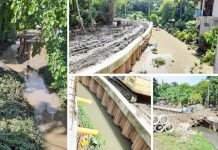ILOILO – Shifting from traditional subsidy programs, the Iloilo provincial government will pilot a “produce-as-payment” model this year that uses farmers’ rice harvests to repay agricultural assistance — reducing government expenditure while sustaining its P20-per-kilo rice initiative.
Dubbed System Enhancement for Rice to Booster, Increase and Sustain Gains Onwards or SERBISYO, the program reimagines subsidy recovery by treating inputs such as seeds, fertilizers, and equipment as investments to be reimbursed not in cash, but in kind.
“The long-term plan of the government is to establish a sustainable system to support production. Any assistance that we give, like seeds, fertilizer, and machinery support from the provincial government, will have a recovery cost,” said Geron Magbanua, chief of the crops division of the Provincial Agriculture’s Office, in an interview Tuesday.
Farmers participating in the second cropping cycle this year will turn over a portion of their harvest — palay — to the Iloilo Rice Processing Center in Pototan. One-third of the resulting rice will be sold at P20 per kilogram to eligible households, while the rest will be sold at market price to generate income that offsets the subsidized portion.
“The production will pay for the subsidy and not the provincial government. What we will give is sort of seed capital,” Magbanua explained.
The initiative will be piloted across 3,000 to 4,000 hectares in the municipalities of Pototan, Zarraga, Dingle, Mina, and Cabatuan, with a projected yield of six tons per hectare. The Department of Agriculture will supply hybrid seeds, while the province will subsidize between 150 to 350 hectares.
Magbanua said they are also exploring ways for the DA to adopt a similar recovery mechanism.
“Our next move is to encourage and negotiate with the Department of Agriculture if they can also recover a portion of their subsidy and use it as seed capital,” he added.
The program’s financial logic underpins Iloilo’s local rollout of the P20-per-kilo rice initiative in August, initially covering 9,534 households with malnourished children.
“We want it to be institutionalized in agriculture. And it can even be replicated by the national government,” Magbanua said.
President Ferdinand R. Marcos Jr., in his State of the Nation Address on Monday, declared that affordable rice is achievable without hurting farmers’ incomes — an assertion Iloilo appears ready to test through a model that banks on productivity instead of perpetual subsidy./PN





